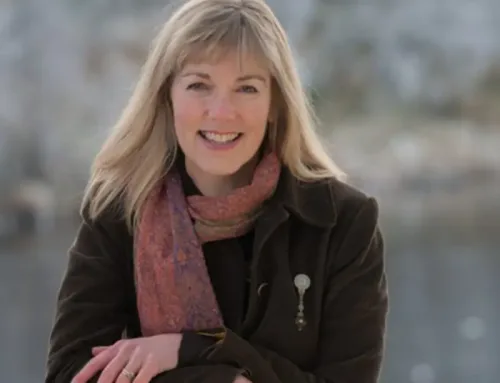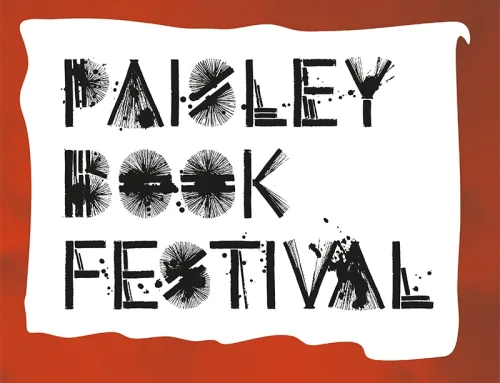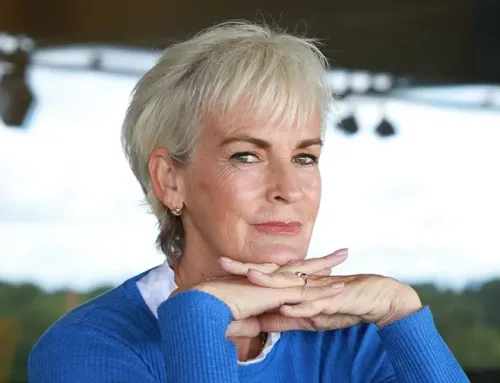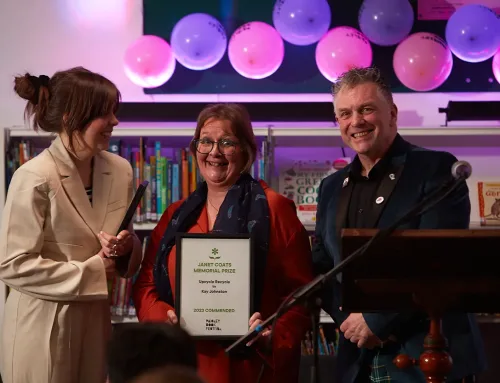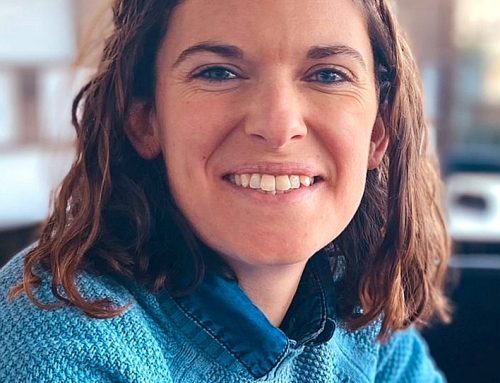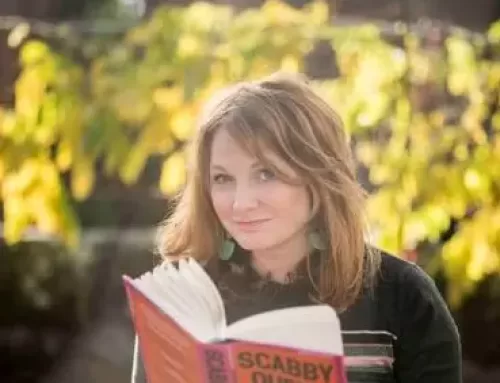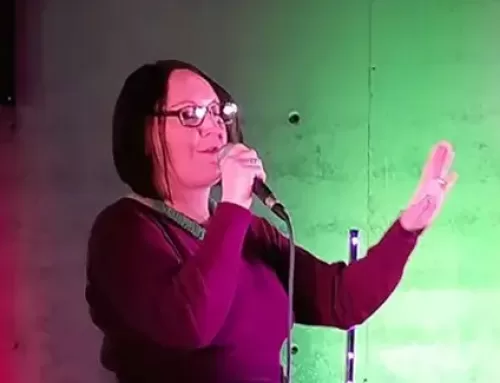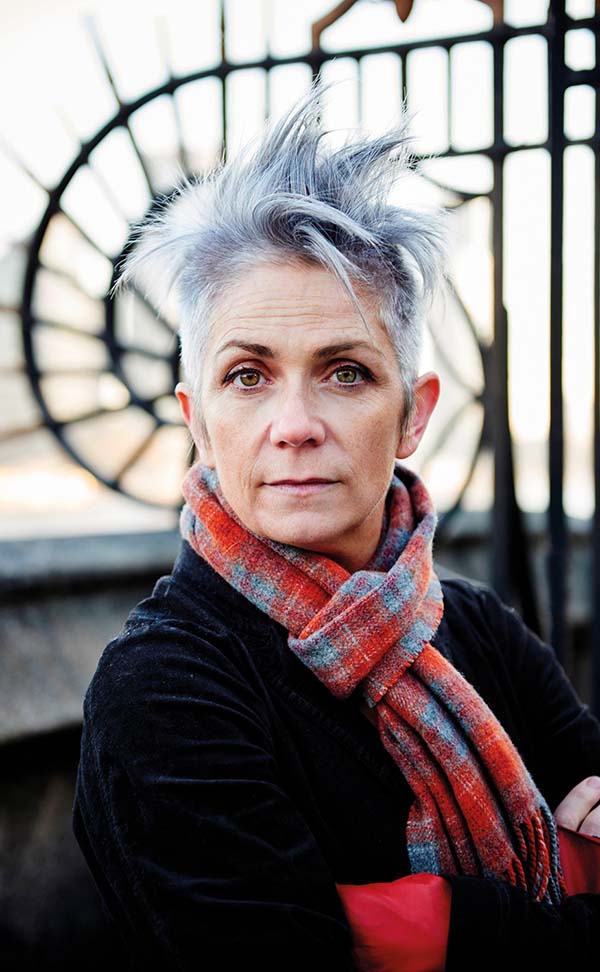
It’s the penultimate day of the Paisley Book Festival 2022. Denise Mina, renowned crime writer, gallus feminist, and all-round fashion icon takes to the stage with Dr Adele Partick from the Woman’s Library in Glasgow. The self-proclaimed ‘gruesome twosome’ are here to talk about Mina’s new book Rizzio, a narrativisation of the brutal murder of Mary Queen of Scots’ private secretary and friend. Set in the Palace of Holyrood in 1566, this bloody episode, almost completely eviscerated from history, took place at the behest of Mary’s husband Lord Darnley. It was hoped that by murdering Rizzio in front of the pregnant Queen, she would be induced to miscarry the baby, removing the direct threat of Catholic succession.
The book is discussed in detail and a number of insights emerge. Her characterisations are complex, venal and brutal. There is an intriguing homo-eroticism about the relationship between Rizzio and Darnley at a time when sexuality was much more fluid. It’s also a time where the boundaries between the two conflicting religious movements were porous and blurred. People in the middle of the 16th century in Scotland, Mina tells us, were a wee bit Catholic and a wee bit Calvinist. In the midst of this ambiguity, there was a consensus on one thing, that the church, irrespective of its doctrinal leanings, was institutionally corrupt.
Adele mentions the fact that the novel is short, but that it is packed with detail and intrigue. Denise agrees that slim volumes often produce hardboiled literary forms, with reference to the classic novels and novellas written at a time when paper was in short supply.
All of Mina’s books are undergirded by feminist principles and Rizzio is no exception. Avoiding a focus on the Queen herself, (Mina has little interest in Royals), attention is given instead to exposing the misogyny of courtly life in the early modern period. Having emerged from the French court, Mary was no stranger to danger, and although she was a tough operator in many respects, she was nonetheless despised for her femininity.
Here strong parallels are drawn with the present, citing the abuse that Scotland’s First Minister receives on a daily basis. ‘It is not safe to be a woman in power, or even a successful woman’, says Mina, referring to both periods of history.
Adele reminds us that fellow crime writer; Louise Welsh had labelled Denise; ‘a brilliant advocate for women’. Denise points out that when Louise and herself were starting out, they didn’t feel entitled to ‘have a say’, but that didn’t deter them, …’we just had a fucking go anyway’, she says defiantly.
Asked about her writing method, Mina says that she writes and then rereads what she has written to see if it still holds her interest. Is it gripping or does it make you want to go make a cup of tea? No one, she points out, makes a cup of tea when someone is just about to be stabbed, they wait until the stabbing has taken place, then they put the kettle on.
Another piece of sage advice is to trust your editor, ‘they are only trying to make it better’. Mina tells of the time she was asked by James Crawford (author and editor at large) to write a short story. When she submitted it, he called her and said, ‘take the middle section out, you don’t need it!’ She dawns an incredulous expression – ‘Do you know who I am?’ she asks inwardly. But remove it she did, and the short story won loads of prizes, so the message was, gird your ego, and listen to advice when it is given.
Her message for women writers was blunt. ‘If you are a woman artist, you won’t be remembered, so you might as well have a party!’ This assertion, she said, is based on the evidence presented by the last 2000 years, and ‘gives women artists freedom to do whatever they want’.
This sentiment constitutes a key cornerstone of her advice to women writers more generally. She states that, as writer who tackles historical subjects, academic historians (who only ever write for other historians) don’t have much respect for her. Given that the ‘experts’ in their ivory towers will neither care nor remember, Denise Mina urges women to do what she’s done for years – ‘to chance your arm!’
To be a writer full-time is a privilege. It’s not the money, it’s the connections you get to make – the joy, for Denise, is handholding in the dark as you move forward with people you don’t yet know. And with this, the discussion comes to an end. The rapport between the (largely female) audience and the effortlessly charismatic Mina is one of mutual respect.
Before retiring to sign books and chat to her many fans, Denise imparts two vital pieces of information. The first is the designer of her ‘hairy’ green jacket, and the name of the shop in Glasgow’s Princess Square. The second is when Mina confesses to having just finished a film script of Rizzio for an American studio. There is only ever a slim chance of these things reaching the production stage, she advises with caution. Nonetheless, this revelation is another Paisley Book Festival exclusive. Now that the idea of a film version of the book is out there, the burning question is, who should play who?
Written by volunteer blogger Joe Smith

